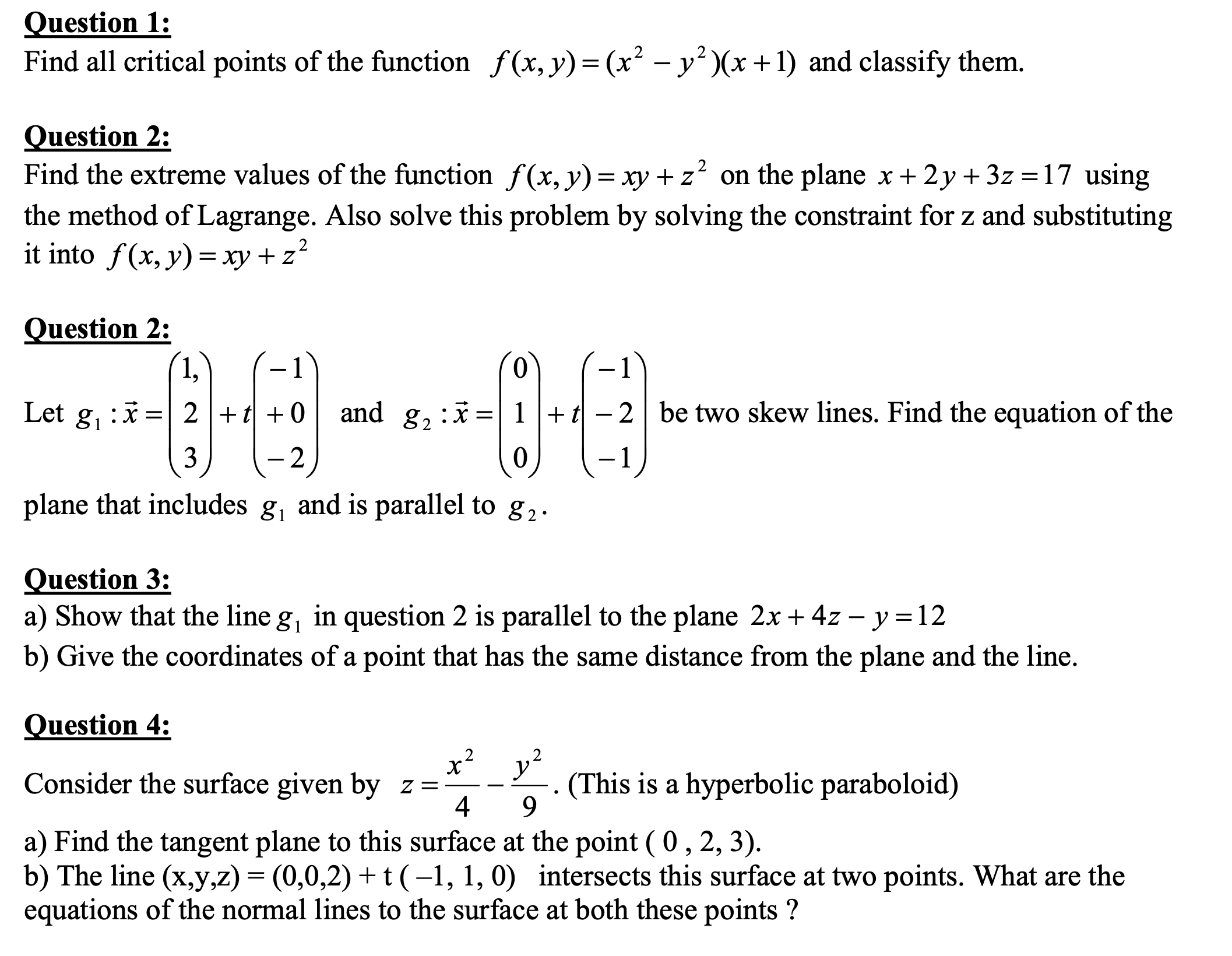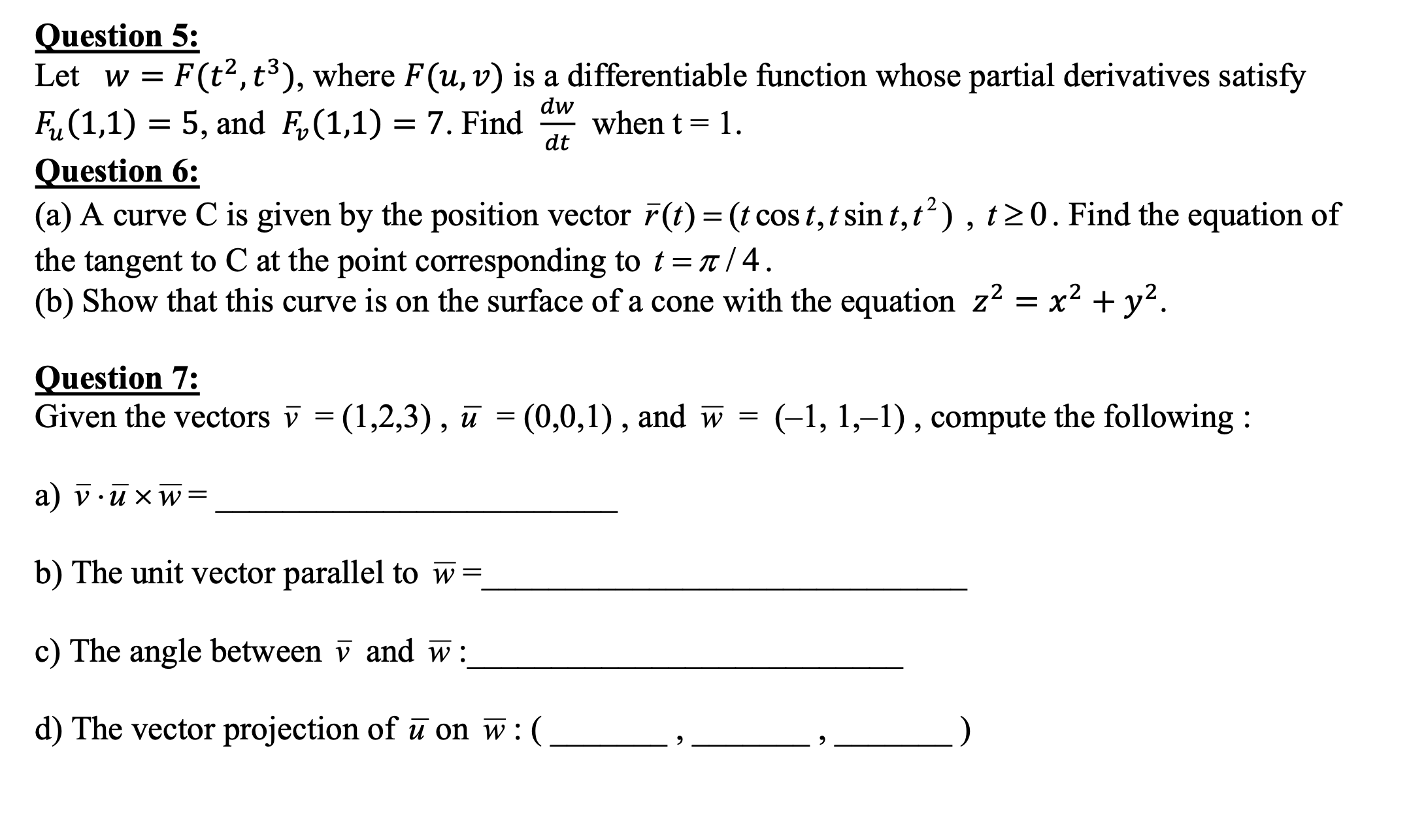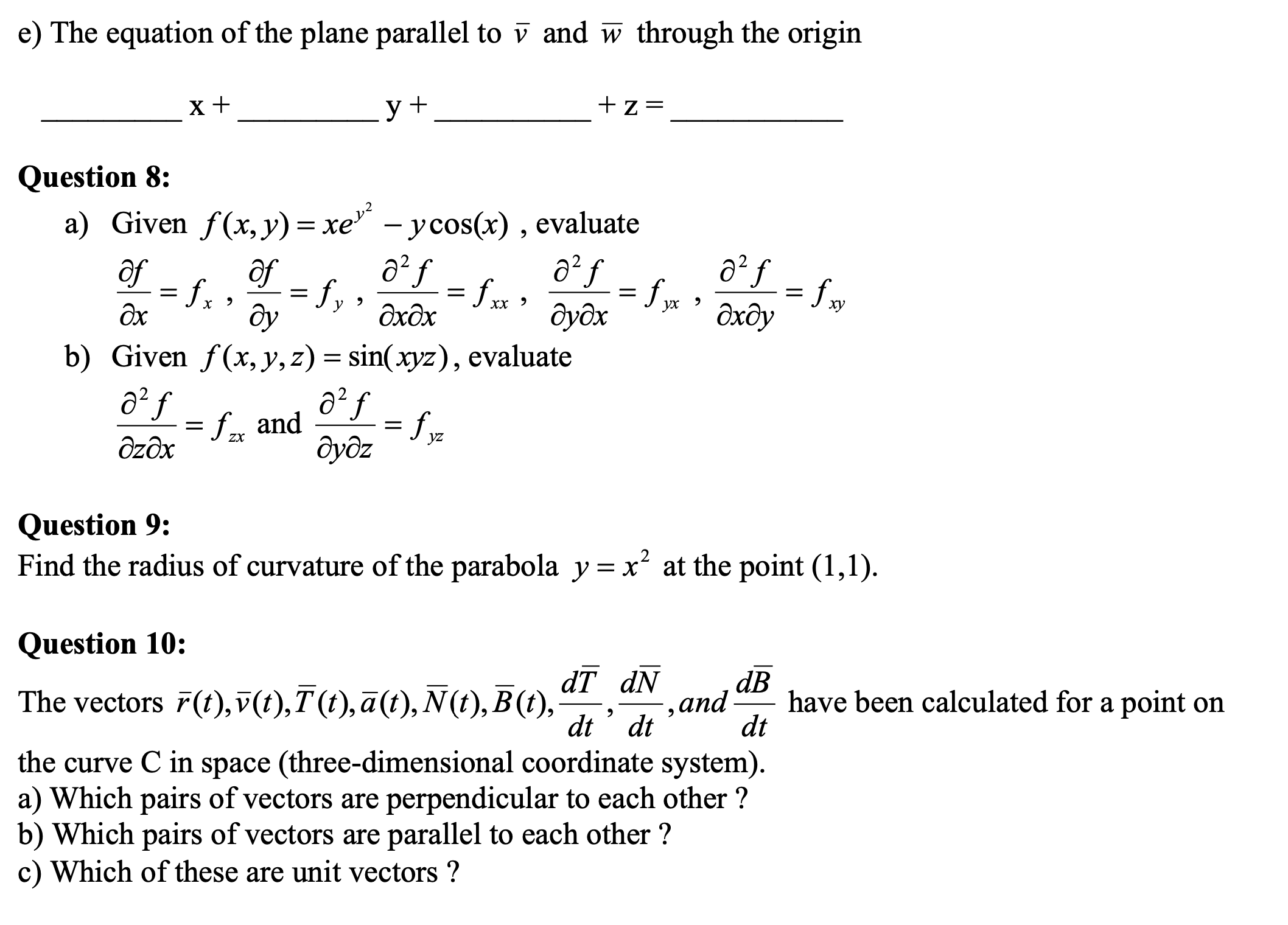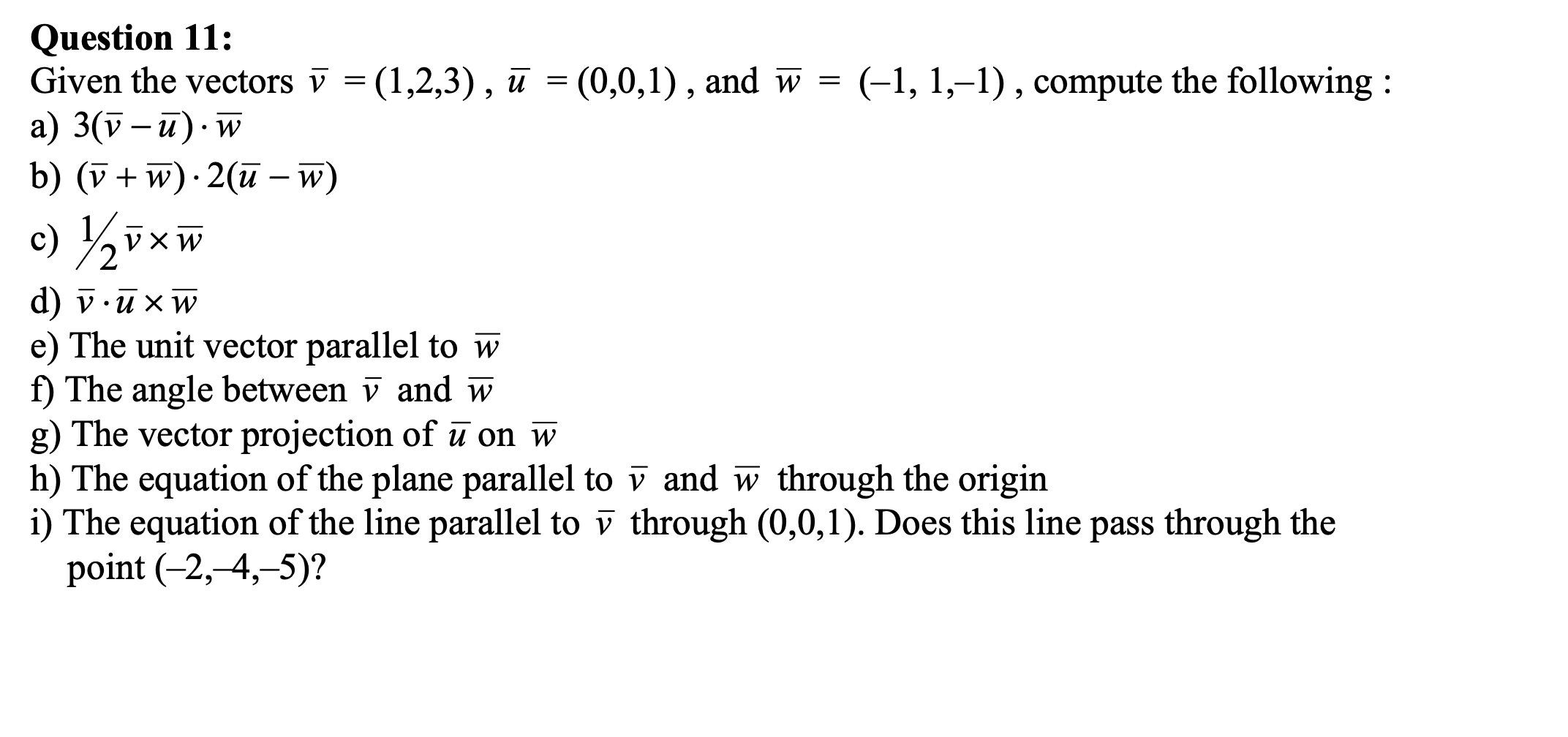Home /
Expert Answers /
Calculus /
question-1-find-all-critical-points-of-the-function-f-x-y-x-2-y-2-x-1-and-classify-them-qu-pa790
(Solved): Question 1: Find all critical points of the function f(x,y)=(x^(2)-y^(2))(x+1) and classify them. Qu ...
Question 1:
Find all critical points of the function f(x,y)=(x^(2)-y^(2))(x+1) and classify them.
Question 2:
Find the extreme values of the function f(x,y)=xy+z^(2) on the plane x+2y+3z=17 using
the method of Lagrange. Also solve this problem by solving the constraint for z and substituting
it into f(x,y)=xy+z^(2)
Question 2:
Let g_(1):vec(x)=([1,],[2],[3])+t([-1],[+0],[-2]) and g_(2):vec(x)=([0],[1],[0])+t([-1],[-2],[-1]) be two skew lines. Find the equation of the
plane that includes g_(1) and is parallel to g_(2).
Question 3:
ag_(1) in question 2 is parallel to the plane 2x+4z-y=12
bz=(x^(2))/(4)-(y^(2))/(9). (This is a hyperbolic paraboloid)
a(0,2,3).
b(x,y,z)=(0,0,2)+t(-1,1,0) intersects this surface at two points. What are the
equations of the normal lines to the surface at both these points? Question 5:
Let w=F(t^(2),t^(3)), where F(u,v) is a differentiable function whose partial derivatives satisfy
F_(u)(1,1)=5, and F_(v)(1,1)=7. Find (dw)/(dt) when t=1.
Question 6:
(a) A curve C is given by the position vector ()/(bar) (r)(t)=(tcost,tsint,t^(2)),t>=0. Find the equation of
the tangent to C at the point corresponding to t=(\pi )/(4).
(b) Show that this curve is on the surface of a cone with the equation z^(2)=x^(2)+y^(2).
Question 7:
Given the vectors ()/(bar) (v)=(1,2,3)(,)/(b)ar (u)=(0,0,1), and ()/(bar) (w)=(-1,1,-1), compute the following :
a()/(bar) (v)(*)/(b)ar (u)(\times )/(b)ar (w)=
b()/(bar) (w)=
c()/(bar) (v) and ()/(bar) (w) :
d()/(bar) (u) on , e()/(bar) (v) and ()/(bar) (w) through the origin
x+,y+,+z=
Question 8:
af(x,y)=xe^(y^(2))-ycos(x), evaluate
(delf)/(delx)=f_(x),(delf)/(dely)=f_(y),(del^(2)f)/(delxdelx)=f_(\times ),(del^(2)f)/(delydelx)=f_(yx),(del^(2)f)/(delxdely)=f_(xy)
bf(x,y,z)=sin(xyz), evaluate
(del^(2)f)/(delzdelx)=f_(zx) and (del^(2)f)/(delydelz)=f_(yz)
Question 9:
Find the radius of curvature of the parabola y=x^(2) at the point (1,1).
Question 10:
The vectors ()/(bar) (r)(t)(,)/(b)ar (v)(t)(,)/(b)ar (T)(t),\bar (a) (t)(,)/(b)ar (N)(t)(,)/(b)ar (B)(t),(d(()/(bar) (T)))/(dt),(d(()/(bar) (N)))/(dt), and (d(()/(bar) (B)))/(dt) have been calculated for a point on
the curve C in space (three-dimensional coordinate system).
a Question 11:
Given the vectors ()/(bar) (v)=(1,2,3)(,)/(b)ar (u)=(0,0,1), and ()/(bar) (w)=(-1,1,-1), compute the following :
a3(()/(bar) (v)(-)/(b)ar (u))(*)/(b)ar (w)
b(()/(bar) (v)(+)/(b)ar (w))*2(()/(bar) (u)(-)/(b)ar (w))
c(1)/(2)()/(bar) (v)(\times )/(b)ar (w)
d()/(bar) (v)(*)/(b)ar (u)(\times )/(b)ar (w)
e()/(bar) (w)
f()/(bar) (v) and ()/(bar) (w)
g()/(bar) (u) on ()/(bar) (w)
h()/(bar) (v) and ()/(bar) (w) through the origin
i()/(bar) (v) through (0,0,1)-2,-4,-5 ?


